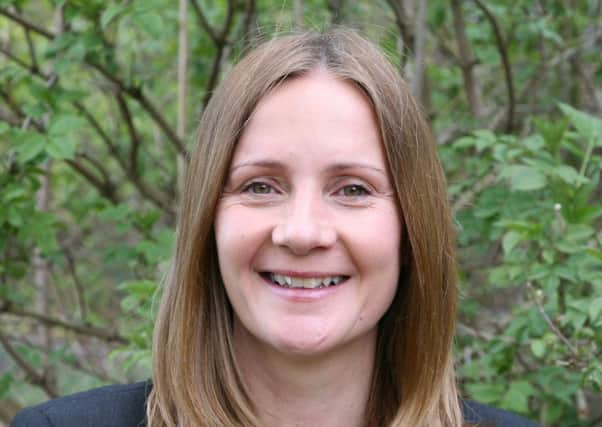Lorraine Thomson: Academics ready and able to help business


From kitchen table enterprises to medium-sized business with ambitions to compete on a global scale, Scottish academics are looking for business partners to commercialise their knowledge and research jointly for real world application.
Innovation is of national importance – the Scottish Government’s CAN DO programme includes academic-business partnering as a key element in stimulating and supporting the economy. Innovation can take many forms from the development of new products, processes or services to enhancing workforces and workplaces.
Advertisement
Hide AdAdvertisement
Hide AdNew and exciting partnerships between businesses and academia are being established everyday throughout Scotland. Uuniversities, colleges and research institutes offer a wealth of knowledge, expertise and specialist facilities but businesses may not have the time or resources to identify what is best for them. That is where Interface can support business and academia, making connections in all sectors.
We are really fortunate in this country that we have some of the world’s top performing universities – five Scottish universities are listed in the world’s top 200 – and they want to work with businesses large and small throughout Scotland. It is more than academic expertise on offer; business can also access specialist facilities: 3D printers, microscopy, human performance labs, wave tanks, virtual reality and textile printing are just some of the facilities and equipment available.
When Inverness-based Coast and Glen was looking for academic input to help scale up their Fishbox home delivery business I was able to identify expertise at the University of Stirling.
Magnus and Fiona Houston’s business delivers fresh fish to subscribers but as the business grew they needed a more automated system which would ensure the efficiency of the fish-buying process.
Dr Rachel Norman, chair of Aquatic Food Security, in the department of Computing Science and Mathematics at the University of Stirling, was their collaborative partner. She developed an algorithm which allowed the company to predict what type and quantity of fish they would need to buy at market, based on customer preferences. The algorithm was designed to improve packing efficiency in the factory, maintain customer satisfaction with their box and minimise waste.
Often, business-academic partnerships are so successful they lead to longer-term mutually beneficial partnerships – both sides learning from each other.
A micro-business which has benefited is Stornoway-based Rarebird. Founder Paulette Brough, who makes handbags and accessories using Harris Tweed, wanted to design her own fabric linings to resolve supply issues and add a unique selling point.
Paulette worked with The Glasgow School of Art to produce a unique design and her products are selling throughout the UK and as far afield as Japan. She found that distance was no object – being based in Lewis was no obstacle.
Advertisement
Hide AdAdvertisement
Hide AdMore than three-quarters of businesses which collaborate with academic expertise report an increase or expected increase in turnover and many go on to work with academics again, progressing feasibility studies or looking at further aspects of developing a product.
There is help with funding to offset the cost of working with academia, such as Knowledge Transfer Partnerships, or Scottish Funding Council’s Innovation Vouchers, which enable early stage feasibility studies and testing with follow on funding.
We work closely with Highlands and Islands Enterprise to find businesses which may benefit from working with an academic partner and HIE’s support in this area ensures that resources are made available.
Innovation needn’t be something that just the big players do. Interface has introduced more than 2,500 businesses to an academic partner and almost a quarter of these have less than 10 employees.
Without the assistance of Interface, 97 per cent of businesses have said their collaboration either wouldn’t have happened at all, or would have taken longer.
There are endless possibilities in the way in which businesses can engage with universities. And it’s not (only) rocket science.
Lorraine Thomson is business engagement manager for Highlands and Islands, Interface.